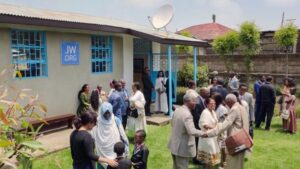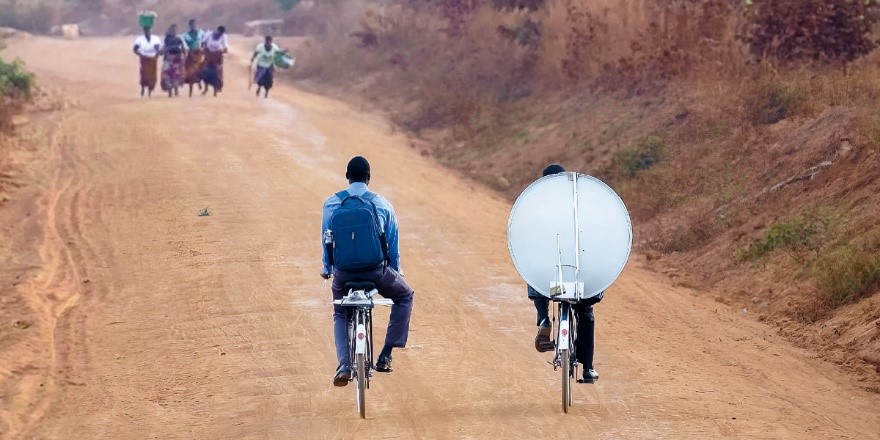By Jehovah’s Witness
Gatmai Kuajien, a man in his 30’s, remembers the struggles he faced to access information, particularly during the pandemic when the country went into lockdown. With schools, workplaces, and religious gatherings moving online, the need for reliable internet access became crucial.
“Oftentimes after subscribing to data bundles, the network would misbehave, and I could hardly download a complete publication or attend a whole meeting,” recalls Gatmai.
Sandra Nimaro, a devout Christian, shares similar experiences. “Sometimes I would subscribe to data bundles with the aim of downloading a book, but before the download could complete, the data finishes,” she says.
Despite the challenges associated with technology, its rapid advancement and the emergence of various communication platforms have become vital tools for reaching and engaging communities worldwide. Governments, companies, and religious organizations have adapted to using technology to accomplish their tasks.

Jehovah’s Witnesses have found innovative solutions to reach people who have limited or no access to the internet. They have introduced the JW Box, a small kit provided to congregations where internet access is limited. It contains a router device that allows members to connect their mobile devices wirelessly and download publications and videos.
“It is an answer to my prayers. I download videos and publications at the shortest time,” says Sandra, who finds the JW Box a game-changer.
As the World Telecommunication and Information Society Day approaches on May 17, Jehovah’s Witnesses are highlighting how they use modern technologies to help those who have limited or no access to the internet access their massive library of digital publications.

“We use technology in any way we can to reach people with practical, Bible-based information for daily life. Whether it is help for families, questions about how to achieve happiness or a hope for the future, it is all there in the Bible, and we want people to see that,” said Alfred Lokule, spokesperson for Jehovah’s Witnesses.
Jehovah’s Witnesses use various methods to provide content in lands with limited technology, including radio and television, satellite technology to make their internet television program, JW Broadcasting, available in Africa, and the JW Box to transfer digital content to people who cannot afford internet access, live in areas with slow internet or frequent outages, or have no internet at all.
Rose, in Nigeria, said, “I am happy to say that the JW satellite channel has replaced my addiction to the news channel. When I watched the news, I was easily irritated by what I saw, and my blood pressure would rise. But JW Broadcasting is so upbuilding and serene! It is my favorite channel.”

Jehovah’s Witnesses also have an official website, jw.org, which remains the most translated website in the world, accessible in more than 1,070 languages, including over 100 sign languages. It contains Bible-based articles for families, information about peace and happiness, timely news articles, videos, and animated shorts.
For more information, please visit jw.org.



